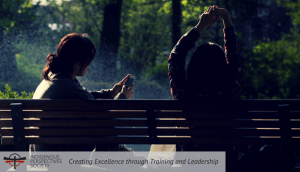 Recently I spent the afternoon at a wonderful event at the Victoria Native Friendship Centre, Stories of Indigenous Social Innovation, where four speakers shared what they are doing to address social issues with new approaches for persistent problems including homelessness, unemployment, affordable housing and violence against women and children. The high percentage of Indigenous people dealing with these social issues is a stark statement about the consequences of colonialism and institutionalized racism.
Recently I spent the afternoon at a wonderful event at the Victoria Native Friendship Centre, Stories of Indigenous Social Innovation, where four speakers shared what they are doing to address social issues with new approaches for persistent problems including homelessness, unemployment, affordable housing and violence against women and children. The high percentage of Indigenous people dealing with these social issues is a stark statement about the consequences of colonialism and institutionalized racism.
Ron Rice, President of the Victoria Native Friendship Centre Board of Directors, shared about the Siem Lelum project providing a new model of urban housing focusing on building community, http://www.vnfc.ca/siem-lelum-respected-house, and the success of the Eagle Project, an extraordinary employment project that has an incredibly high rate of sustained success in the lives of participants, http://www.vnfc.ca/programs-services/eagle-project. The Eagle Project is an example of the kind of work that would succeed in building capacity in communities throughout British Columbia.
Don Elliot, the Executive Director of the Greater Victoria Coalition to End Homelessness, spoke on the work they do and their partnership with the work of the Aboriginal Coalition to End Homelessness, http://aboriginalhomelessness.ca/, an organization that grew out of their work in the community when different possibilities for support were identified. The Aboriginal Coalition to End Homelessness works helping reconnect dislocated people to their communities so they no longer suffer isolated and alone, and their community can help them find a home in the city or return to be supported in their home territory.
Shaun Loney, one of the founders of Aki Energy, http://www.akienergy.com/, talked about the extraordinary benefits of taking a social enterprise approach to business and social issues and his perspective and what he and his team have accomplished is powerfully inspiring. I highly recommend his book, An Army of Problem Solvers – Reconciliation and the Solutions Economy, http://www.armyofproblemsolvers.com/. I bought it and it is a book everyone needs to read.
Paul Lacerte, the founder of the Moose Hide Campaign – a grassroots movement of Aboriginal and non-Aboriginal Men who are standing up against violence towards women and children, http://moosehidecampaign.ca, shared a compelling story of how he came into awareness of the absence of men present in this important discussion. He talked about his personal resolve to bring men into the conversation and stand up for loving and caring men. When he looked around the room saying “Where are the men in this discussion?” it was interesting to observe that the audience in the room at this event was also 90% women.
It is great to see what is possible when people are not afraid to use their imagination and entrepreneurial spirit to take on important work for community well-being and sustainability. Collectively we need to look at ways to encourage programs and projects that are proven to work, and support Indigenous solutions, especially Indigenous solutions for Indigenous issues. In many cases, the ingenuity and proactive work being done in Indigenous communities demonstrates the deep work that needs to be done in all of our communities to heal, learn, and embrace our true potential. If something is effective, let’s do more of it.
About the Author
Alesha Hayes is the Business Development Coordinator for the Indigenous Perspectives Society – Creating Excellence through Training and Leadership. A non-indigenous ally, Alesha was born and raised in Secwepemc territory and now enjoys life in beautiful Lkwungen territory on southern Vancouver Island. For more information on Cultural Perspectives Training email her at aleshah@ipsociety.ca and visit www.ipsociety.ca
